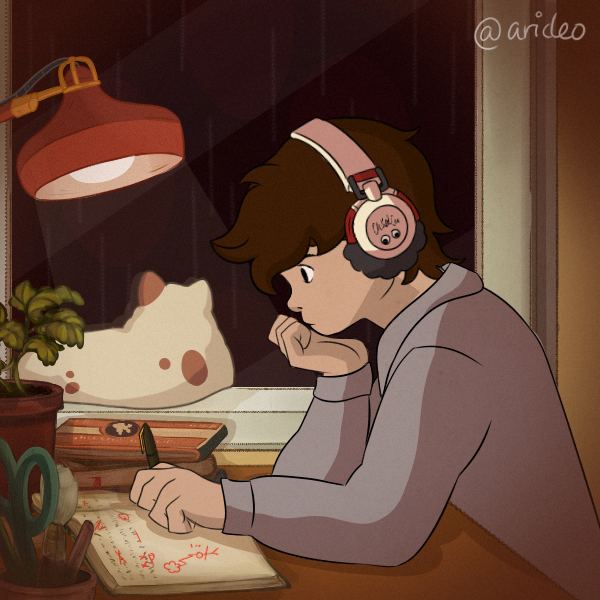I’m not implying every nurse or doctor does this, but couldn’t come up with a better title.
A cognizant patient is above all a free person. A free person is free to accept and to deny care, whatever may come. It’s his life, let him live his life as he sees fit. Explain, educate, inform and then ask: do you understand that if we don’t do this you may die / lose a limb / lose your liver / fall down and have a stroke and end up bed bound if we’re lucky enough to save your life?
I don’t understand the logic playing mental gymnastics to make a patient stay at a unit because the nurse or doctor in charge are convinced it’s in the patient’s best interest to do so, even when after education he wants to leave. I’m the odd one at my unit, as most of my coworkers do vehemently disagree with me, as they expect me to provide care AND to care. They feel they lost if a patient leaves against medical advice.
To me it looks like they don’t understand individual freedom and forget that a patient is still a free person. I wouldn’t want to be my coworkers’ patient.
You cannot stop grown ups from making stupid choices. The cognizant patient gets to decide his answer. Not a nurse or doctor convinced they get to decide for the patient.
Another problem I see: say you force a cognizant patient to stay at your unit because you are convinced you are doing the right thing. Why do you think he’s going to be a pleasant patient to work with? People lash out when they feel trapped and they insult and punch personnel. What’s the point?
Punched coworkers will call in sick and start looking for jobs elsewhere, some insulted ones too.
Wouldn’t it be better to inform, document, let him leave, move on?
I guess you could also ask what’s the reason for working at a suicide hotline? Seems similar enough in many cases.
Alternatively, I’m sure many patients simply see attempts to keep them there as upselling. They feel fine, etc. It’s not the medical professional’s fault our healthcare billing/payment system sucks. Many genuinely care, and without some level of urging… how would a patient know an issue was urgent?
I guess you could also ask what’s the reason for working at a suicide hotline? Seems similar enough in many cases.
They aren’t similar, though, are they? OP’s hypothetical is that someone came for help, got some advice about care, and said “no.” In the hotline case, someone’s actively reaching out for help. They start the same, but in the case of your hotline, the caller can hang up at any time and pull the trigger; you can’t trap them on the phone.
Wow. Who said anything about trapping. Both you an OP are dancing across the line of opposing arguments:
A cognizant patient is above all a free person. A free person is free to accept and to deny care, whatever may come.
I don’t understand the logic playing mental gymnastics to make a patient stay at a unit
You can’t make a patient stay unless they are mentally incompetent, a minor, or in a state where leaving could pose a threat to safety. This would likely require a court order. The patient is always free to simply leave. It’s not a stupid question, but it is a flawed premise.
So… both of your arguments effectively boil down to, “Why should medical professionals care?”
I’m finished with this thread.
I think you generally shouldn’t make it super easy for people to harm themselves. They should be able to do so. But I believe it should require a mininum amount of effort.
Also you might be invested a bit. If you did 6h of surgery on them. Or wiped off their butt for a week, I suppose it might hurt to see that’s been in vain, or at least made worse. I’m not a doctor or nurse and only worked briefly in healthcare. But I suppose it’s the same as with other professions. I’m also offended if I put in quite some effort to get something right, strive for a perfect result. And then someone slaps on a badly-made and buggy UI… That’s just taking pride in your work.
Plus with hospitals, there is liability, the hippocratic oath. And you probably learned that job because you’re intrinsically motivated to help people. Not because you’re interested in philosophy and freedom. And then trying to help will be more natural to you.
Plus, hospital staff is desensitized to a degree. They deal with a lot of people who are not sound. Mentally ill, are making a lot of bad decisions and that ended them up there, took drugs and are doing weird things, or the drugs they’re getting as medication affects them. Nurses might just be desensitized by their everyday job once they face the one person that’s talking about the same weird things, just for a sound reason. Because what you tend to see all day, every day is people trying to rip out the tubes directly attached to their arteries, wanting to smoke in urgent care, while being attached to the oxygen tank directly next to them. Every other week someone will try to just walk out with big open wounds… And you can’t really have them blow up the hospital, or die at the bus stop infront of the hospital, regularly. It’s just difficult to balance all of that.
I’m not in healthcare either and I totally see your point.
But, i guess, the situation is complicated. What do you do with a 7 year old child who doesn’t want to go to school? Send them anyways, probably, tell them they have to because it’s good for them. Now, why do parents behave that way? Because they assume the child doesn’t understand the full implications of their choices.
With patients it’s a bit similar. Sure you can tell them they’re going to die if they refuse medication, but will they really understand the depthness of that? Probably they can’t even imagine it, idk. Could you imagine your own death? I guess for a lot of people that’s just a difficult thing to imagine, possibly also because monkey brain conveniently completely has a blind spot for that option (remember people driving recklessly, for an example).
So, you have to estimate: Does the person really fully understand what’s happening, or are they just brushing it off as an “yes the doctor wants to scare me to give more expensive treatment, extracting money out of me” thingy. You can’t assume all patients have studied medicine and understand the deep connections. Does the person really know what they’re talking about, or are they only looking at things at a superficial level?
I’m not in healthcare, so I’m not sure how valuable my opinion is
If I had to guess, I’d say that there’s a cost associated with a patient refusing care, particularly if the condition is going to be aggravated.
This cost might be financial. It might also mean that the patient returns to the healthcare system and requires more intense care. It probably also means that the patient will suffer more while outside the system.
I don’t know what your healthcare system looks like, but mine is stretched to the breaking point. If someone discharged themselves against the advice of doctors and then later worsened and returned to the hospital, they might die waiting for triage. It’s an extremely bad look for the hospital and erodes the public’s opinion of healthcare. And while the hospital is being raked over the coals for allowing someone to die in the waiting room, the media will conveniently ignore that the patient previously discharged themselves against the advice of their doctor.
Another scenario to think about: just because a patient is cognizant doesn’t mean they’re behaving rationally. While the patient is in care they could be heavily medicated and not realize how bad their situation would be without care: until the meds wear off and their suffering returns. If they got a particularly bad prognosis, then the panicky ape brain could take over and they just want to get out of their, damn the consequences.
Does all that add up to being more important than the patient’s autonomy? Opinions will probably be divided. I don’t personally think so, if I was restrained against my will I’d be pretty angry about it. But I understand the rationale behind the people who want to keep their patient in the system.
Does that mean YOU have to care? Probably not. People should be free to make their own decisions, and you can’t and shouldn’t take responsibility for the decisions that they make.
My friend in recovery had relapsed and fell off a bridge. The doctor hated him. Told him that he couldn’t leave the hospital because his creatinine was dangerously high. I helped him get out of there.
I assume most people in healthcare do the job because they actually do care.
The insurance companies create an environment that makes it feel like it’s providers-vs-patients. The ruling class has been doing this kind of manipulative crap to working people for generations.
I think thus just boils down to whether you think Kantian or Utilitarian ethics is more correct.
I think it’s not just ok, but morally obligatory to do your best to promote people’s well being, even via manipulation, regardless of if they are hellbent on fucking themselves over. Human beings are deeply, deeply imperfect, and we do not always make good rational decisions. With respect to medical care specifically, if someone refuses something that is objectively a clear benefit regardless of potential unknown context, then they are not doing so rationally, and there’s no good reason to just throw your hands up and give up on them for that.
besides the whole oath thing there are provisions in the aca the punishes hospitals if people are back in the emergency room within a certain period of time.







